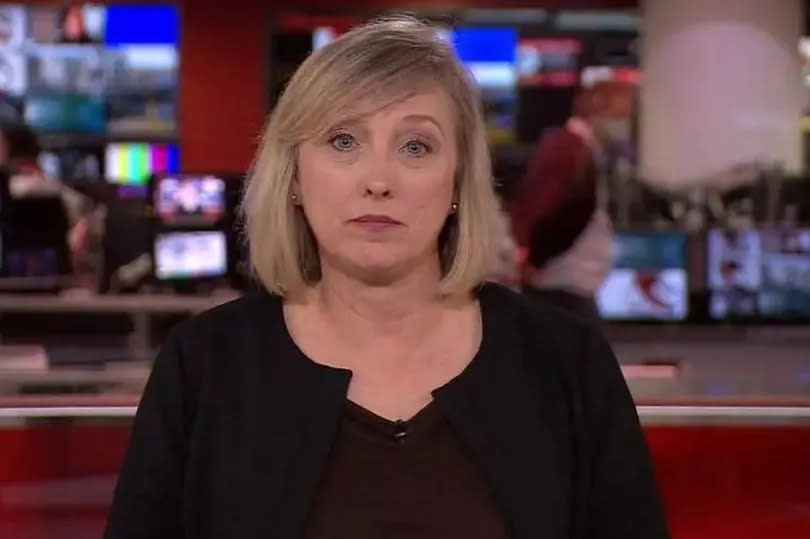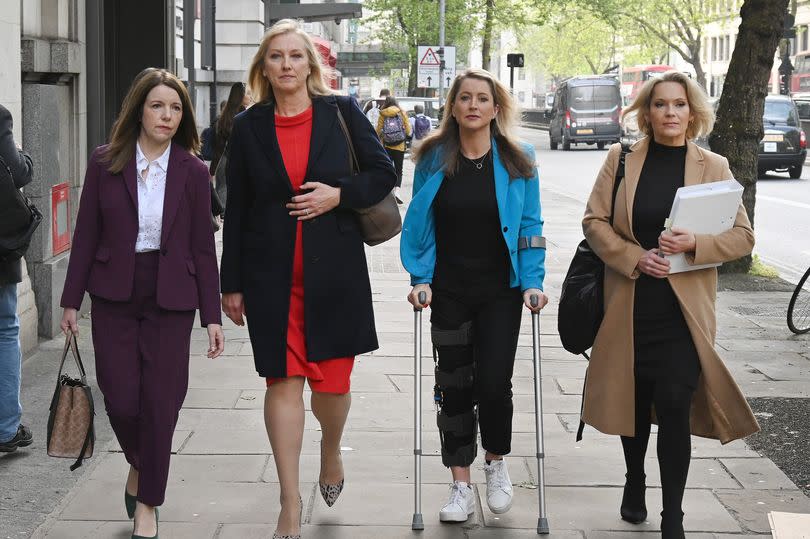Leicestershire's Martine Croxall loses part of legal action case against the BBC

Leicestershire’s Martine Croxall has lost part of her legal action case against the BBC on equal pay grounds. Three of Martine’s colleagues were also involved in the action in which they claim to be being kept off-screen against their will.
Martine, who was born and grew up in Stoke Golding, near Hinckley, is among four female BBC News presenters to have launched proceedings against the BBC at an employment tribunal, alleging they were denied chief presenter roles with the corporation following the merger of the BBC News Channel and BBC World News. The four had included a claim for equal pay as part of their legal challenge, but this was dismissed at a preliminary hearing at the Central London Employment Tribunal.
Tribunal judge Sarah Goodman found that Martine and her colleagues Karin Giannone, Kasia Madera and Annita McVeigh, who have all been off-screen for over a year amid the dispute, could not bring new equal pay claims against the BBC. This, she said, was because the journalists, who are all aged 49 to 55, had previously reached settlements with the BBC.
READ MORE: Marks and Spencer in Leicester city centre to shut
Prior to being taken off screen in March last year, Martine regularly helmed the 11am to 1pm slot and was one of the BBC News Channel’s most familiar faces. She was also one of the main hosts of the channel’s now axed The Papers review programme.
At the tribunal, Martine and her colleagues had claimed they had not been paid equally compared with their male counterparts since February 2020, with the four alleging there was a gap of about £36,000 a year in pensionable salary as of February 2023. However, lawyers for the BBC successfully argued that the four presenters were “seeking a second bite of the cherry on the same set of facts”.
The tribunal comes amid the four presenters’ failure to land a chief presenter role with the newly revamped BBC News Channel. In documents, the presenters said that a manager had told union reps in consultation meetings that new lower paid correspondent-presenter jobs were intended as development opportunities, meaning they were for people with less experience than them.

Martine, Kasia, Karin and Annita, all of whom have decades of on-screen experience, all described themselves as having been “set up to fail in the jobs process” for the merged channel which saw them being denied work and kept off-screen for over a year while less experienced freelancers and casual staff covered their shifts. They claim that being kept off the air happened against their will and that the allegedly “bogus” jobs process had caused distress and affected their health - claims the BBC denies.
In her ruling, Judge Goodman found that four presenters could not bring a claim for equal pay, but said they can make claims on age and sex discrimination. In the case of Martine, 55, she can also make a discrimination claim on being a union member as well as on wages.
In a joint statement, the four journalists said: “We are pleased the tribunal has agreed our four discrimination claims should be heard together, claims the BBC’s lawyers tried to split, which would have necessitated eight hearings at great additional expense to the licence fee payer. We remain committed to seeking equal pay despite the BBC’s lawyers relying on a novel argument to prevent our claims progressing. We await the judge’s written ruling, to which we will give further consideration.”
A BBC spokesman said: “We are pleased with the result and that the tribunal has accepted our position. We will not be commenting further at this stage.”
All four will have their discrimination cases heard jointly at a tribunal set for Monday, March 17 next year. It is expected to last three weeks.

 Yahoo News
Yahoo News 
